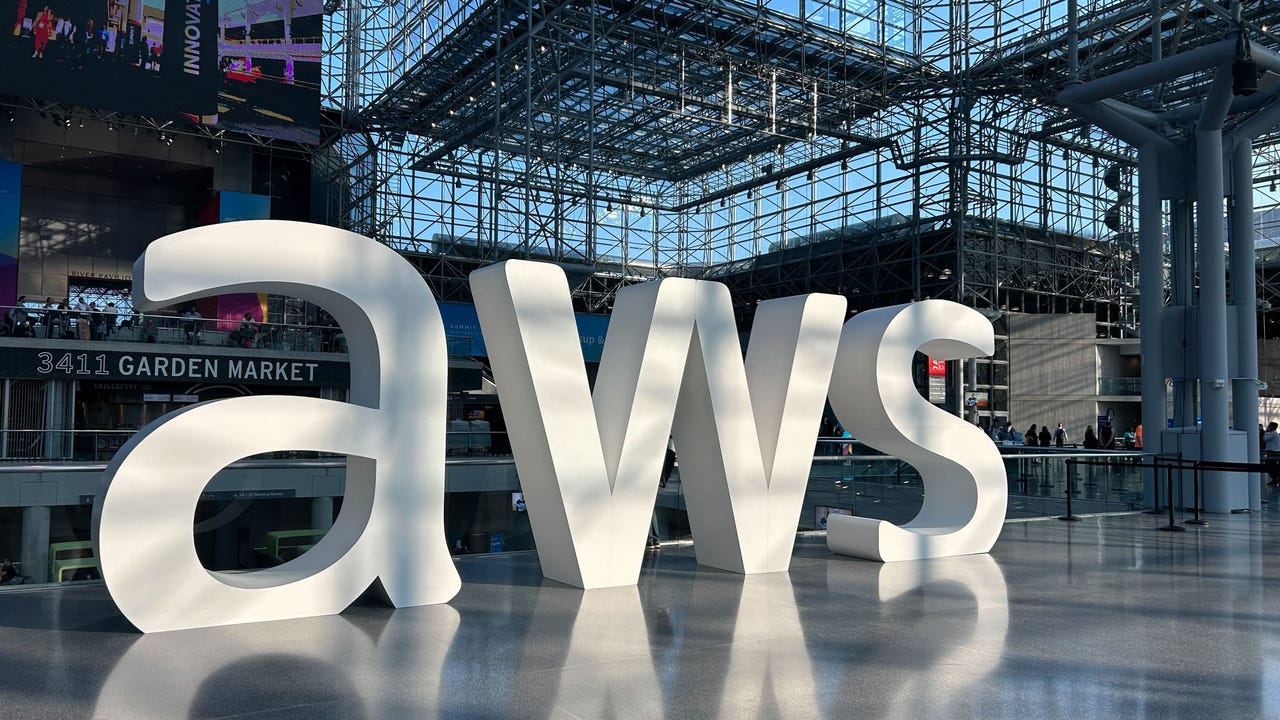































 Sabrina Ortiz/
Sabrina Ortiz/ Amazon Web Services (AWS) has introduced local cloud zones that are set up for a customer's exclusive use, roping in the Singapore government as its first global customer.
The AWS Dedicated Local Zones aim to cater to organizations in the public sector and other regulated industries, which have to meet regulatory and compliance requirements for certain workloads. Fully managed by the US cloud vendor, these dedicated cloud infrastructures operate in a customer-specified location or data center and are used exclusively by the customer or community.
Also: Amazon hones in on generative AI at AWS Summit and unveils new AI projects
Singapore's Smart Nation and Digital Government Group (SNDGG) has signed up as the first global customer of the AWS Dedicated Local Zones. The government agency is responsible for the public sector's digital transformation and engineering capabilities.
The country's government chief digital technology officer Chan Cheow Hoe said SNDGG had worked with AWS to define and build Dedicated Local Zones. "[These] meet our stringent data isolation and security requirements, enabling Singapore to run more sensitive workloads in the cloud securely," Chan said.
The Singapore government in June said it had carved out dedicated cloud resources for the public sector to deploy artificial intelligence (AI) applications more efficiently and securely. Called the AI Government Cloud Cluster, the platform runs within a dedicated environment on Google Cloud and offers builder tools for generative AI applications, which developers with varying coding skillsets and limited technical knowledge can use to build chatbots and search platforms.
Also: Google introduces 11 new security features for Workspace (some AI-powered)
The AI cluster can be accessed via the Government on Commercial Cloud (GCC) platform, which provides a central infrastructure for local government agencies to deploy commercial cloud services. Running on AWS, Google Cloud, and Microsoft Azure, the GCC is part of a five-year roadmap to move the public sector's on-premise IT systems to commercial cloud platforms.
AWS has cloud regions and local zones, the latter of which are provided to meet latency and data sovereignty requirements. The new Dedicated Local Zones offer similar local benefits, with the exception that they are exclusively used by a single customer or community.
With Dedicated Local Zones, customers also have the ability to configure their own private zones with the security and governance capabilities they need to adhere to their local regulatory needs, according to AWS. These features allow customers to monitor and control access and operations to their dedicated zones, including access auditing and restrictions.
Also: Ransomware attacks broke records in July, mainly driven by this one group
Matt Garman, AWS' senior vice president of sales and marketing, said in a post : "Our public sector and regulated industry customers have told us they want dedicated infrastructure for their most critical workloads to help meet regulatory or other compliance requirements. Many of these customers manage their own infrastructure on premises for workloads that require isolation. [However], this forgoes the performance, innovation, elasticity, scalability, and resiliency benefits of the cloud."
According to Garman, the dedicated zones, operated by local AWS staff, provide these cloud benefits with added security and governance features, including options to apply security clearance or other criteria on local AWS operating personnel.
AWS has six local zones across the Asia-Pacific region, including in Delhi, Manila, Auckland, and Perth.
 Tags chauds:
Innovation et Innovation
nuage
Tags chauds:
Innovation et Innovation
nuage